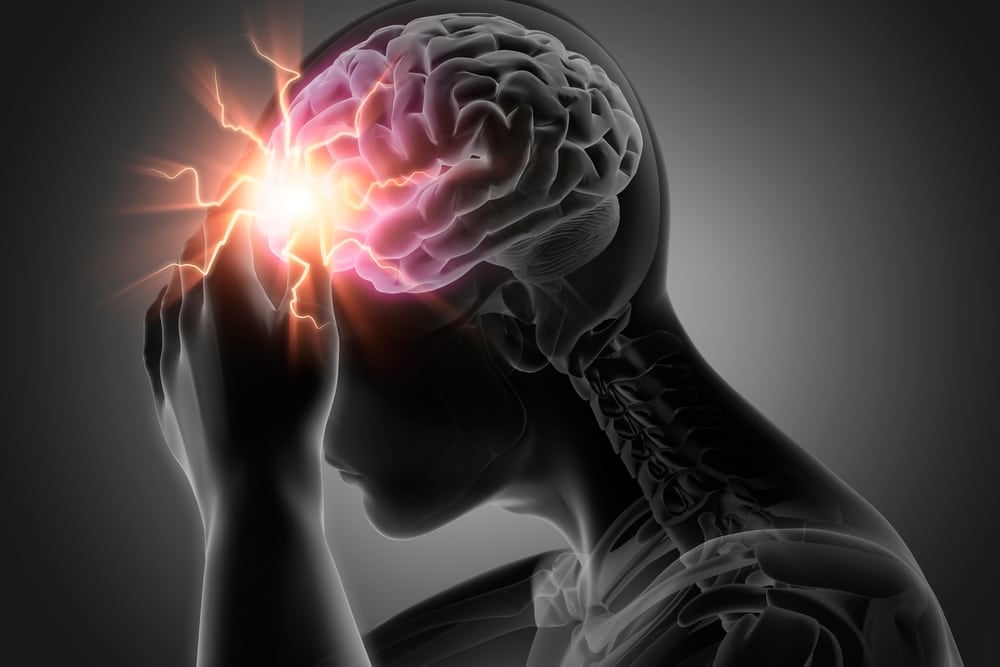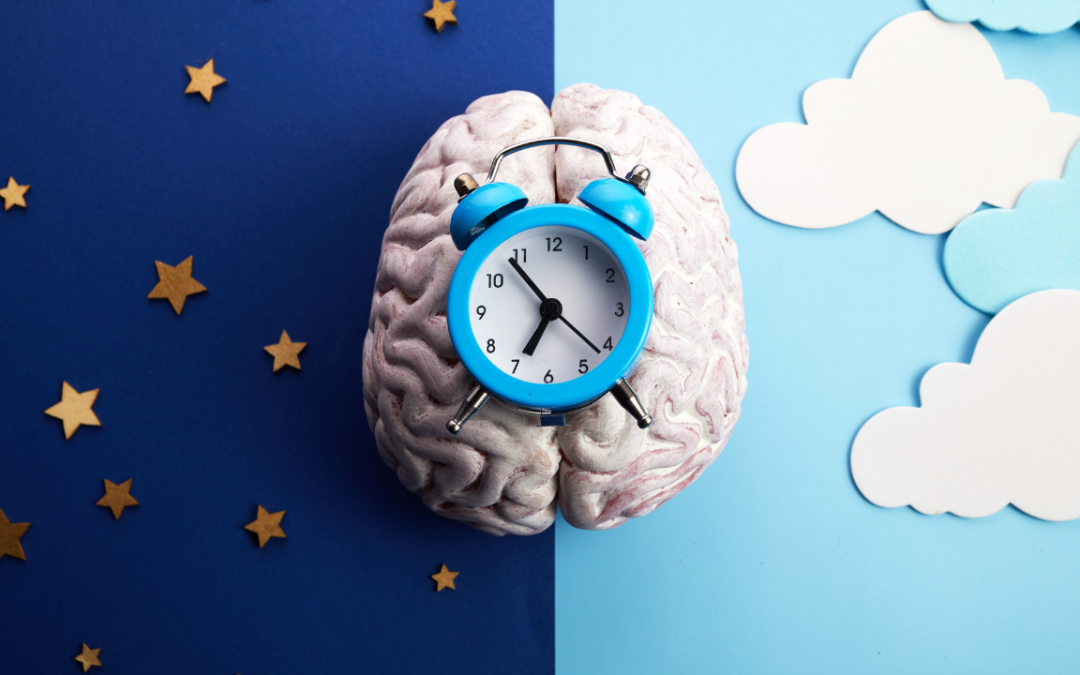Why Poor Sleep Might Increase Stroke Risk and How to Reduce It
Crafted by: Jonathan Chew
Sleep is essential for maintaining physical and mental health, yet millions of people suffer from sleep-related issues that compromise their well-being. Among the severe health risks associated with sleep disorders is an increased risk of stroke—a condition that results from interrupted blood flow to the brain, leading to potentially life-threatening or debilitating consequences. Studies suggest that several sleep disorders, such as sleep apnea, insomnia, and restless leg syndrome, are linked to a heightened risk of stroke. This analysis explores these common sleep issues, explaining the mechanisms that elevate stroke risk and discussing prevention strategies.

The Connection Between Sleep Disorders and Stroke Risk
Lifestyle factors significantly influence stroke risk, and sleep is among the most important. Inadequate sleep can strain the cardiovascular system, lead to irregular blood pressure, and cause inflammation—all of which contribute to a higher likelihood of stroke. Researchers have uncovered that individuals with specific sleep disorders, including sleep apnea, insomnia, and circadian rhythm disruptions, face a disproportionately higher risk of stroke than those who get restful, uninterrupted sleep. Here’s a look into some of these conditions.
1. Sleep Apnea: The Leading Sleep Disorder Linked to Stroke

Obstructive sleep apnea (OSA) is a prevalent disorder characterized by repetitive interruptions in breathing during sleep. Caused by a blockage of the airway, sleep apnea leads to oxygen deprivation, forcing the brain to rouse the individual repeatedly throughout the night to resume breathing. This results in poor sleep quality and frequent awakenings, often without the individual’s awareness.
Stroke Risk Mechanisms
- Oxygen Deprivation: The intermittent pauses in breathing during sleep apnea deprive the brain and other organs of oxygen. This condition, known as intermittent hypoxia, causes oxidative stress on cells and can contribute to brain cell damage. The reduced oxygen level prompts a rise in blood pressure, which increases stroke risk.
- Increased Blood Pressure: One of the most consistent side effects of sleep apnea is hypertension, a well-known risk factor for stroke. Each time breathing is interrupted, the body releases stress hormones such as adrenaline, which raise blood pressure and heart rate. Over time, chronic hypertension damages blood vessels, setting the stage for stroke.
- Heart Arrhythmias: Sleep apnea can cause irregular heart rhythms, or arrhythmias, particularly atrial fibrillation (AFib), an irregular and often rapid heart rate. AFib increases the chance of clot formation in the heart, and if a clot breaks loose and travels to the brain, it can block blood flow and cause an ischemic stroke.
Prevention and Management
- Positive Airway Pressure Devices: Continuous positive airway pressure (CPAP) devices are the standard treatment for sleep apnea. They keep the airways open and ensure steady oxygen flow during sleep.
- Lifestyle Changes: Weight loss, regular exercise, and avoiding alcohol or sedatives before bed are also recommended to mitigate the severity of sleep apnea.
2. Insomnia: A Silent Contributor to Stroke Risk

Insomnia, characterised by the inability to initiate or maintain sleep, affects millions worldwide. Chronic insomnia, marked by persistent difficulty in sleeping at least three times a week for over three months, is linked to elevated levels of stress, anxiety, and even increased risk of stroke.
Stroke Risk Mechanisms
- Stress and Inflammation: Insomnia elevates levels of stress hormones, such as cortisol. Over time, elevated cortisol levels contribute to inflammation in blood vessels, causing endothelial dysfunction, a condition linked to atherosclerosis (hardening of the arteries) and ultimately increasing stroke risk.
- High Blood Pressure and Metabolic Strain: Poor sleep quality from insomnia places metabolic stress on the body, leading to elevated blood pressure and other cardiovascular risks. This chronic strain weakens blood vessel walls, increasing vulnerability to clots and haemorrhages, both common causes of stroke.
- Increased Risk of Mental Health Disorders: Insomnia is closely associated with mental health conditions such as depression and anxiety, which are independently linked to increased stroke risk. Psychological distress can contribute to unhealthy habits, like smoking and excessive alcohol consumption, which further increase stroke risk.
Prevention and Management
- Cognitive Behavioral Therapy for Insomnia (CBT-I): CBT-I is a recommended treatment for chronic insomnia, addressing the behaviours and thoughts that hinder sleep.
- Sleep Hygiene and Lifestyle Adjustments: Maintaining a consistent sleep schedule, reducing caffeine and alcohol intake, and creating a relaxing bedtime routine can significantly improve sleep quality and reduce the stroke risk associated with insomnia.
3. Restless Leg Syndrome (RLS): An Overlooked Contributor

Restless leg syndrome (RLS) is a neurological disorder marked by an uncontrollable urge to move the legs, typically accompanied by uncomfortable sensations. RLS often disrupts sleep, leading to fragmented rest and contributing to cardiovascular risks.
Stroke Risk Mechanisms
- Sympathetic Nervous System Activation: RLS episodes frequently activate the sympathetic nervous system, resulting in elevated blood pressure and heart rate. Constant stimulation of the sympathetic system strains the cardiovascular system, increasing stroke risk.
- Sleep Fragmentation and Blood Pressure Regulation: Frequent awakenings lead to sleep fragmentation, which prevents the body from effectively regulating blood pressure. Poor blood pressure control, particularly during sleep, is associated with higher stroke risk.
- Iron Deficiency: RLS has been linked to low iron levels, which can impair oxygen transport in the blood. Poor oxygenation and iron deficiency may compound cardiovascular issues, making individuals more susceptible to stroke.
Prevention and Management
- Medications and Iron Supplements: Medications, including dopamine agonists, can reduce RLS symptoms, and iron supplements are helpful for individuals with low iron levels.
- Lifestyle Adjustments: Engaging in moderate exercise, practising stress-reduction techniques, and limiting caffeine intake can reduce RLS symptoms and improve sleep quality.
4. Circadian Rhythm Disorders: Disrupted Biological Clocks

Circadian rhythm disorders, such as shift work sleep disorder and delayed sleep phase disorder, result from disruptions to the body’s natural sleep-wake cycle. Sleep quality and duration are often compromised when the internal body clock is misaligned with external schedules.
Stroke Risk Mechanisms
- Hormonal Imbalances: Circadian disruptions affect the secretion of hormones like melatonin, which regulates blood pressure. Irregular blood pressure control increases the risk of cardiovascular events, including stroke.
- Metabolic and Inflammatory Response: Disruptions in circadian rhythm can trigger inflammatory responses, leading to plaque buildup in blood vessels. Chronic inflammation damages blood vessel walls, creating conditions conducive to stroke.
- Elevated Blood Pressure During Non-Sleep Hours: People with disrupted sleep-wake cycles tend to have higher blood pressure and heart rate when they should ideally rest. This increases overall blood pressure variability, strongly correlated with stroke risk.
Prevention and Management
- Light Therapy: Light therapy helps reset circadian rhythms by exposing individuals to bright light in the morning, signalling the body to align with a natural wake-sleep cycle.
- Consistent Sleep Schedule: Maintaining a regular sleep schedule as much as possible, even on days off, helps stabilise the circadian rhythm and reduce cardiovascular risks.
5. The Role of Poor Sleep Quality and Short/Long Sleep Duration
Beyond specific disorders, general sleep quality, and sleep duration play significant roles in stroke risk.
- Short Sleep Duration (Less than 6 Hours): Short sleep duration is associated with heightened inflammation, blood pressure, and risk for metabolic syndrome, all elevating stroke risk.
- Long Sleep Duration (More than 9 Hours): Oversleeping can also increase stroke risk, as it is often a marker of underlying health issues, such as depression, cardiovascular disease, or poor physical activity levels.
Prevention and Management
- Balanced Sleep Hygiene: It is ideal to maintain consistent sleep durations between 7 and 8 hours. Practices such as avoiding screens before bed, limiting naps, and establishing a sleep-friendly environment contribute to better sleep quality and lower stroke risk.
Conclusion
Sleep disorders, including sleep apnea, insomnia, restless leg syndrome, circadian rhythm disorders, and even variations in sleep duration, present substantial risk factors for stroke. They impact cardiovascular health through mechanisms like oxygen deprivation, inflammation, and blood pressure dysregulation. To mitigate these risks, it is crucial to recognise sleep disorders early and adopt preventive and treatment strategies tailored to each condition. Addressing sleep disorders improves quality of life and significantly lowers the likelihood of stroke, underscoring the importance of healthy sleep as a pillar of cardiovascular health.

